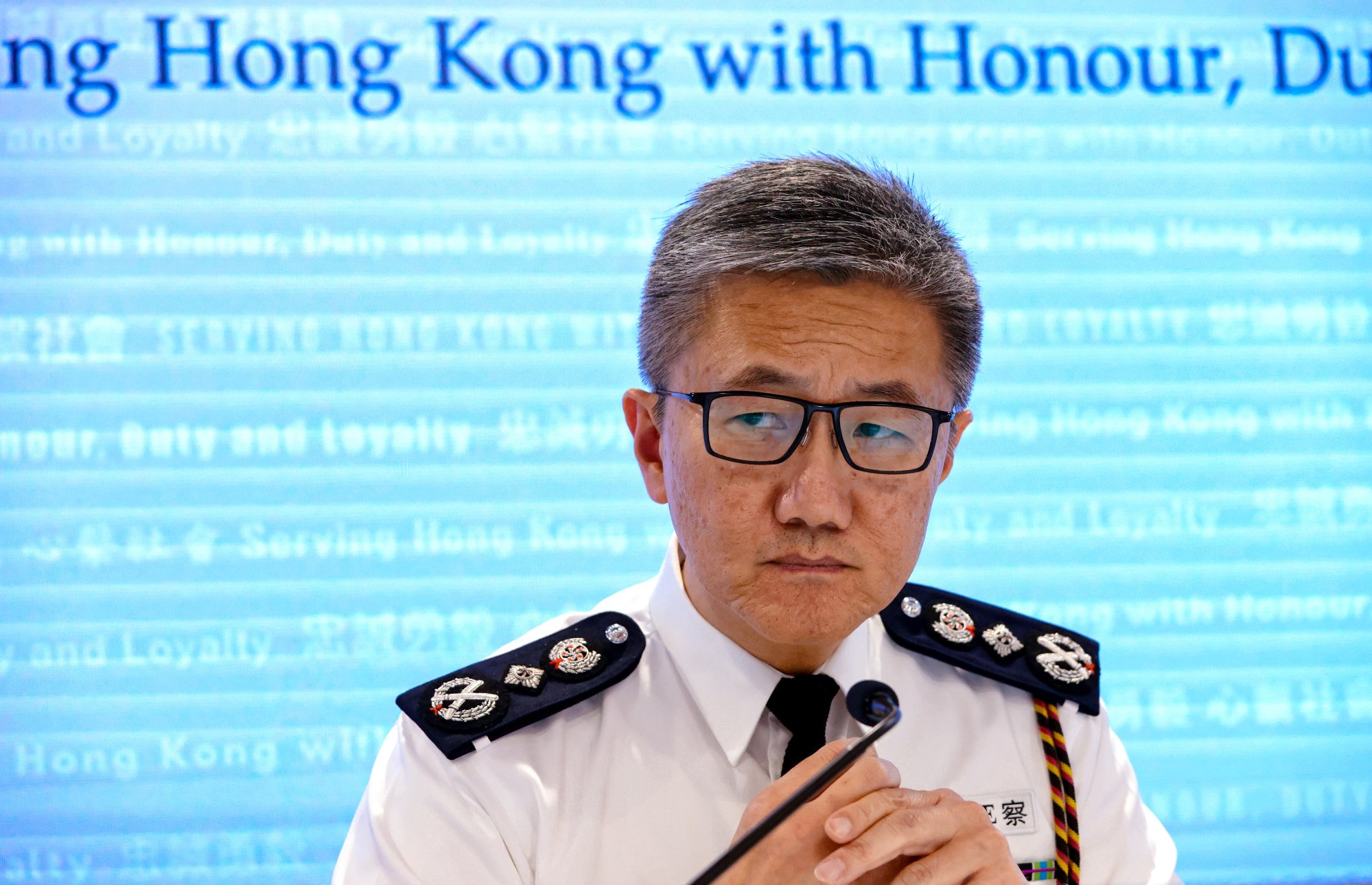Hong Kong authorities have not ruled out the use of facial recognition technology to fight crime and maintain national security, but the city’s police chief promised that guidelines will be drawn up for the use of personal information gathered by a new network of eye-in-the-sky CCTV cameras.
Commissioner of Police Raymond Siu Chak-Yee on Sunday said the government will install 615 CCTV cameras in the city by next month, the first phase of a plan to put up 2,000 surveillance cameras by the end of the year.
“We are still in the preparation phase, but we will not rule out the possibility [of using facial recognition] as technological advancements can definitely help us be more effective in law enforcement and other areas,” he said.
“Citizens do not have to worry. The police will make use of these technologies to combat crimes, but we will do so lawfully.”

Siu added authorities were still in the early stages of identifying the circumstances where technology would be used, such as tracking suspects, and did not rule out using the information for cases involving national security.
He said authorities had not decided how long surveillance footage would be stored for and that the city would look at operational procedures used in other jurisdictions.
Siu argued that the installation of only 2,000 CCTV cameras was insufficient for a densely-populated city such as Hong Kong.
He compared the city with the UK, which started the installation of surveillance cameras in the 1990s and now has more than 7.3 million of them around the country, and Singapore, which has 90,000 CCTV cameras.
New Hong Kong national security law ‘defensive rather than offensive’: Lam
New Hong Kong national security law ‘defensive rather than offensive’: Lam
“This is only the first phase. We believe, in the future, there will be more than 2,000 cameras,” Siu predicted.
“We find that there is definitely a need to use this for increasing the level of safety and combating crimes.
“The use of surveillance cameras has been proven to be highly effective in maintaining security in other countries.”
Siu said the force would set up a surveillance system independent of existing ones installed by government bodies such as the Housing Department and the Leisure and Cultural Services Department.
He promised that the new cameras would only cover public areas and that the government would consult the Office of the Privacy Commissioner for Personal Data about protection of information.
Hong Kong hawker control officers start wearing body cameras to help with checks
Hong Kong hawker control officers start wearing body cameras to help with checks
Cheuk Wing-hing, the deputy chief secretary, first revealed the government’s plan to install 2,000 CCTV cameras in densely populated parts of the city and high-crime areas last month.
The announcement came a week before Chief Executive John Lee Ka-chiu announced a 30-day consultation exercise on proposed home-grown national security legislation designed to target treason, insurrection, sabotage, foreign interference, theft of state secrets and espionage.
Hong Kong is obliged under Article 23 of the Basic Law, the city’s mini-constitution, to enact its own legislation banning a variety of national security offences.
The city’s legislation would work alongside the 2020 Beijing-imposed national security law designed to penalise acts of secession, subversion, terrorism and collusion with foreign forces.
"used" - Google News
February 11, 2024 at 03:43PM
https://ift.tt/IW8kGRv
Facial recognition technology could be used in Hong Kong: police chief - South China Morning Post
"used" - Google News
https://ift.tt/f2zit0F
https://ift.tt/i7Qt0Z9
Bagikan Berita Ini














0 Response to "Facial recognition technology could be used in Hong Kong: police chief - South China Morning Post"
Post a Comment